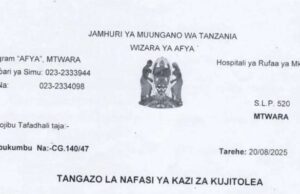Getting a scholarship to study in Africa involves several steps and exploring various opportunities. Here’s a general guide to getting started:
1. Identify Your Area of Study and Level of Education
– Decide if you are looking for an undergraduate, graduate, or doctoral scholarship.
– Identify your field of study, as some subjects are specific to certain professions.
2. Research Scholarship Opportunities
– Government Scholarship: Many African countries offer tuition assistance to local and international students. Examples include South African Government Scholarships, Nigerian Government Scholarships, and Egyptian Government Scholarships.
– University Scholarship: Top universities often have scholarships. Check the official websites of the universities you like.
– International Organizations: include such as the African Union, the United Nations, and the World Bank provide scholarships for African students.
– Non-Governmental Organizations (NGOs): Various NGOs scholarship. Examples include the Mastercard Foundation and the Aga Khan Foundation.
– Business Scholarship: Some others offer scholarships as part of their social responsibility programs.
3. Check Eligibility Criteria
– Kenya you meet the requirements to join the courses you want, such as business qualifications, nationality, age limits and language skills.
4. Prepare Required Documents
– Academic Transcripts: Get certified copies of your transcripts.
– Letters of Recommendation: Get letters of recommendation from teachers, professors or employers.
– Personal Statement/Essay: Write a timely statement or an interesting essay explaining your accomplishments, goals, and why you deserve the scholarship.
– Proof of Language Proficiency: If required, provide proof of language proficiency (e.g., TOEFL, IELTS).
– Passport or ID: Make sure your passport or valid ID.
5. Apply
– Online Application: Most scholarships have an online application process. Fill the form correctly and submit all required documents.
– Application Deadlines: Pay close attention to the application deadlines. Submitting your application early will be beneficial.
– Follow Up: After applying, follow up if necessary to confirm that your application has been received and is complete.
6. Prepare for the Interview
– Some subjects require an interview. Prepare by researching common interview questions and practicing your answers.
7. Continue to Know
– Join forums, social media sources, and scholarship and education mailing lists in Africa to stay updated on new opportunities.
Useful Websites and Resources
– Scholarship Website: [scholarshipportal.com](https://www.scholarshipportal.com)
– Africa Scholarship: [africascholarships.com](https://www.africascholarships.com)
– Opportunity Desk: [opportunitydesk.org](https://www.opportunitydesk.org)
– University Websites: Visit the websites of African universities directly for the specific scholarships they offer.
Popular Scholarships for African Students
– Basic Mastercard Elite Program
– DAAD Scholarship for Postgraduate Related Courses
– African Union Study
– Chevening Scholarships (for studying in the UK)
– Fulbright Foreign Student Program
Remember, the key to getting a scholarship lies in thorough research, thorough preparation, and the use of focused time. Good luck!

















Thanks for sharing. I read many of your blog posts, cool, your blog is very good.
Your point of view caught my eye and was very interesting. Thanks. I have a question for you. https://accounts.binance.com/sk/register-person?ref=OMM3XK51
Thank you for your sharing. I am worried that I lack creative ideas. It is your article that makes me full of hope. Thank you. But, I have a question, can you help me? https://accounts.binance.com/en-IN/register-person?ref=UM6SMJM3